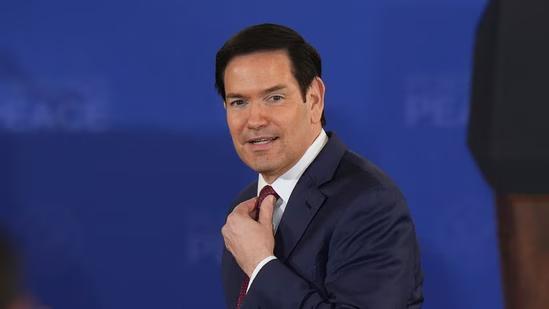
We Keep an Eye on India & Pak Situation Every Single Day: US
The situation between India and Pakistan has been a matter of concern for the international community, especially in recent years. The two countries have had a tumultuous relationship, with border skirmishes, terrorist attacks, and military standoffs becoming a regular occurrence. In the midst of this ongoing tension, US Secretary of State Marco Rubio has made a statement that has sent shockwaves across the region.
According to a recent report, Rubio claimed that the US “keeps an eye” on the situation between India and Pakistan “every single day”. This statement has sparked widespread interest, with many wondering what the US is doing to address the issue and whether it has a plan in place to prevent further escalation.
Ceasefires, Rubio said, “can fall apart very quickly”. This is a sobering reminder of the fragility of the current situation. With tensions running high and the risk of conflict always present, it is crucial that all parties involved take steps to de-escalate the situation and work towards a peaceful resolution.
But what exactly is the US aiming for in this context? Rubio’s statement suggests that the US is not looking for a permanent ceasefire, but rather a peace deal. This is a significant departure from the usual approach of focusing on short-term ceasefires and instead signals a willingness to engage in more meaningful negotiations.
The context in which Rubio made this statement is also worth noting. He was speaking in the context of the ongoing conflict between Russia and Ukraine. This gives us a glimpse into the US’s overall approach to conflicts and the importance it places on finding lasting solutions rather than simply patching up temporary ceasefires.
So, what does this mean for India and Pakistan? For one, it underscores the importance of the US’s role in the region. The US has long been a key player in regional affairs, and its engagement can have a significant impact on the trajectory of the conflict.
Moreover, Rubio’s statement suggests that the US is willing to take a more proactive role in addressing the situation. This could involve increasing diplomatic efforts, providing humanitarian aid, and even offering military assistance to support the Indian military.
But the US’s role is not without its challenges. The region is complex and multifaceted, with many different stakeholders and interests at play. The US must navigate this complex web of relationships and interests in order to find a solution that works for all parties.
In addition, the US’s engagement in the region is not without its critics. Some argue that the US is overly involved in regional affairs and that its actions are driven by self-interest rather than a genuine desire to promote peace and stability.
Despite these challenges, Rubio’s statement is a welcome development. It suggests that the US is committed to finding a lasting solution to the conflict and is willing to work with all parties involved to achieve this goal.
So what can we expect from the US in the coming months? It is likely that the US will continue to play an active role in the region, using its diplomatic and military might to support the Indian military and promote peace and stability.
The US may also increase its engagement with Pakistan, which has been a key player in the conflict. The US has long been critical of Pakistan’s support for terrorist groups and its role in the conflict, but Rubio’s statement suggests that the US is willing to work with Pakistan to find a solution.
Ultimately, the situation between India and Pakistan is complex and multifaceted, and finding a solution will require the involvement of all parties. Rubio’s statement is a welcome development, but it is only the first step. The US must continue to engage with the region and work with all parties involved to find a lasting solution to the conflict.



